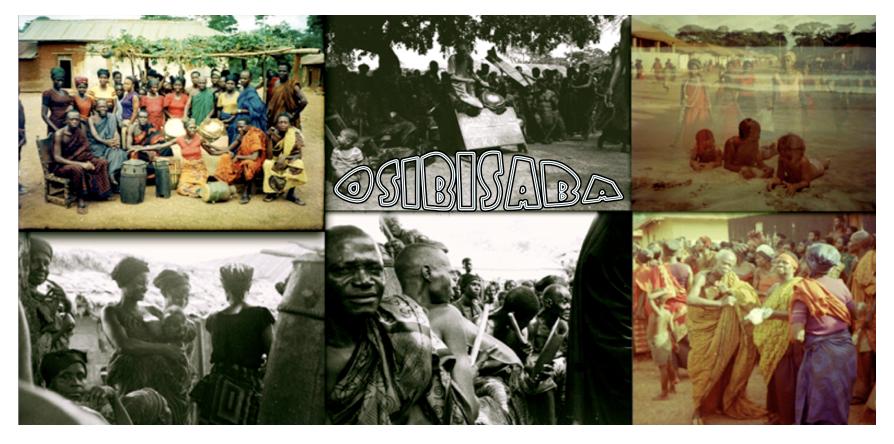Here we have an album of four sweet, upbeat tunes from K.K.'s no. 2 Band, with a soukous-style track at the end. The title track "Heavy Mama" is one of my all time favorites. This humorous, feel-good pidgen song has a soukous/highlife flavor to it and will definitely get stuck in your head in no time ("Heavy mama, heavy mama, ohhhh heavy mama!"). Here, the singer laments the sad position in which his lady (his "heavy mama") has left him. He buys her everything she desires, gives her money to send back to her papa in the village, yet she only comes to visit him when it's payday! As in many other highlife songs, conflict between the sexes (especially relating to money and women) is highlighted as a major theme.
Also, I would like to note this album's interesting cover artwork which I find appealing and idiosyncratic. I would be curious to hear other folks' interpretation of this album cover. What do you think?
Every album by K.K.'s No. 2 Band is a treat to hear, but it's a shame that there isn't much information available about this group and its leader/singer A.K. Yeboah (Anthony King Yeboah, or sometimes "King" Yeboah). We know that Yeboah received his musical training under the legendary highlife musician and concert party performer Kakaiku (Moses Oppong). Yeboah went on to perform with Kakaiku's no. 2 band, which I would guess was the group out of which K.K.'s no. 2 Band evolved. According to John Collins, Yeboah and his K.K.'s no. 2 went on to perform as a concert party troupe, surely a successful one considering Yeboah's early training in Kakaiku's band. In case you're unfamiliar with the "concert party," here's a brief description from Collins:
 |
| E.K. Nyame's Akan Trio |
The influence of the concert party is present in A.K. Yeboah's music itself. Like the guitar band highlife of other Akan concert party performers (E.K. Nyame's Akan Trio, for instance), group singing is structured in the format of a trio. Middle-range and bass singers are present, and the "treble singer" stands out above the others with his high falsetto and "warbly" vibrato (these "treble singers" play female roles in concert parties, typically all male performances!). This phenomenon of female impersonation and treble singers is an interesting one (Yeboah serves as K.K.'s treble singer), as female highlife singers were a small minority during this time period and met some considerable difficulties. The few female singers who did perform, like Charlotte Dada and Vida Rose, were often considered loose and immoral (as a child, a Ghanaian friend of mine recalls his parents speaking about Charlotte Dada as if she were a prostitute!).
In terms of the structure of these songs, singers may alternate between long, declamatory solo sections, returning to group refrains sung in harmony. These refrains have a unique musical texture, as each singer adds his own variations and improvisations to the basic melody. The resultant texture is one of offset rhythms, musical interjections, and embellishments, the things that make the music sweet. Enjoy!
Download Heavy Mama




Your blog is superb ! Welcome on >jammagica< recommended link list !
ReplyDeleteCan't wait to hear it but in terms of the album cover the immediate thought that came to my mind was the Byrds classic Sweetheart of the Rodeo album. A world or two away from Heavy Mama and I'm sure its a visual doppelganger and nothing more.
ReplyDeleteLove the cover! And the music!
ReplyDeleteThank you very much for all these goodies!
ReplyDeleteReally great stuff. Thank you!
ReplyDeleteThank you sooooooo much. Cole
ReplyDelete